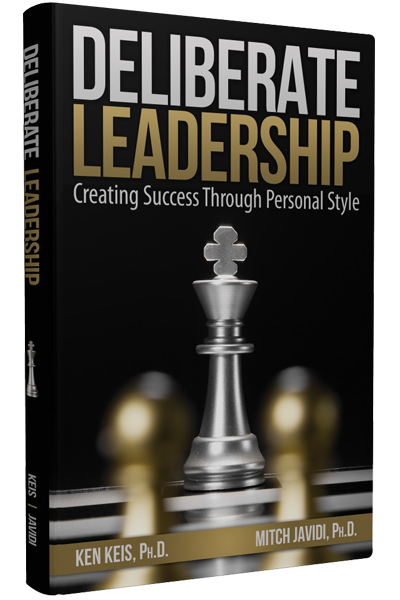THE POWER OF OUR THOUGHTS

Our thoughts are the foundation of our action or inaction. They can turn into results and success. Almost everything we have—or have not—accomplished is a result of our thinking. What are your thoughts saying about you?
Over the past several months, my schedule had become extremely busy, with coaching, writing projects, training events, travel, company operations, and family time. I could tell that the pace—fast and becoming faster—was starting to zap my energy levels, causing my thoughts to become less positive and less results-oriented than usual. I was surprised at the way I had shifted from my positive approach of working to achieve my goals to“Wow! This is a lot of work! Will we ever get it done?”My overall circumstances had not changed―nor had my capabilities. The only thing that had changed was my response.
Our thoughts create our reality and affect our level of success.Thoughts literally convert into energy in our physical minds and bodies. Think about how a polygraph works and what it measures. A polygraph shows your internal response (energy) to specific questions. The thought energy a polygraph measures is the same thought energy creating your personal success blueprint.
How do you frame success and failure?Most of our thought patterns have simply become habitual, and many are destructive. This was proven in a 25-year study conducted by Dr. Martin Seligman and documented in his book, Learned Optimism. His research proved that the way we think about our successes and failures affect our future achievement levels, and that both components are equally important. Life is not just about overcoming failure; it’s also about taking credit for our success.
To break free from poor habitual thought patterns,we first need to become aware of how our thoughts and language can be, and are, hindering our success. Three key concepts apply to both positivity and negativity.
Time (permanence):Do you see the situation as temporary or permanent?
Limits (pervasiveness):Is this a specific event or does it affect everything in your life universally?
Person(personalization):Do you blame yourself and/or give credit to others, and do you take credit for wins?
These three key thought elements―permanence, pervasiveness, and personalization―apply in opposite ways, depending on whether the event is positive or negative.I have outlined the research to assist you in determining whether you have success- or failure-based thought patterns.
Positive-Event Success Thinking:
When a positive event occurs, the most successful individuals think and respond in this way:
They believe success will be ongoing, and not random or a “freak” event
Their success applies to all other areas of their life, not just the specific event
They personally take credit for the results or positive outcome
Example: A sales rep has a record month, with double her normal sales. Which response matches someone with positive thought patterns?
This is my lucky month. It’s fortunate I was knowledgeable with the customers who came in. If it weren’t for my manager, I never would have put this kind of month together.
I’m sure glad the company put on that promotion; it certainly helped me this month. If they continue the program, I might be able to do this two months ina row.
Ican see how all my hard work is paying off. I expect this trend to continue as I maintain this amount of effort in the future.
In my training sessions, many individuals state they were simply telling the truth when they answered a)or b), but the most successful individuals responded with c). They had the courage to take credit for the win and confidently expected their success to continue—no matter what. Dr. Seligman’s research confirmed those responses. How would you normally respond to success? With a), b), or c)?
Negative-Event Success Thinking:
When a negative event occurs, the most successful individuals think and respond in this way:
They believe the failure (negative event) is temporary and will pass.
They frame the negative situation as limited to that specific event.
They don’t blame themselves for the failure, and feel the outcome of the event was out of their control.
(Caution:This particular response should be limited to events that are not harmful to others. There are situations for which we MUST be accountable for our actions, such as lying, stealing, cheating, or causing pain or an accident.)
Example: A manager has had three new hires quit this month. Which response matches someone who is thinking successfully?
There are no good employees available in the marketplace. It seems every time I hire someone, I end up with the wrong person. I must be doing something wrong.
It’s unfortunate that the last three hires have not worked out. This is a short-term challenge, until we can attract better applicants. It’s too bad those individuals didn’t have what it takes to succeed here.
There are plenty of good candidates out there, if we look in the right places. We have survived in the past, and we will continue to do so in the future. I take responsibility for the poor performance of the new hires.
In this case, the statement chosen by the person who thinks positively and successfully is b).
The way you respond to both positive and negative events dramatically influences your level of success. In many cases, your thoughts―especially in business, sales, and people-driven responsibilities―are much more important than even your IQ, intelligence, or competency level.
It is clear that confidence and self-worth levels are critical to your overall success. The way you think and feel about events is the basis for most of your results and future failures and successes.
Just as “you are what you eat,” you are what you think. So, why not ensure your thoughts are benefiting you?
Action Steps:
Acknowledge that your thoughts highly influence your results.
Determine the results you are getting now, and envision the results you would like to achieve in the future.
Change your thinking in order to change your desired results.
Consider how you respond to both positive and negative events. Your success is influenced equally by the way you think about both.
Successful individuals believe a positive event is permanent and universal, and they believe they have personally contributed to their own success. For less-successful individuals, the opposite is true;they believe that success is short-lived, specific to the event, and caused by external factors, meaning they personally had little to do with it.
On the flip side, successful individuals believe a negative event is temporary, specific to that event, and caused externally. Pessimistic individuals believe the negative event is permanent, universal, and internal (their fault).
Using this framework, pay close attention to your thoughts toward both positive and negative events. Think how you might change and/or improve your response level. Give your new attitude time to settle—for many people, this new approach to thinking means unlearning a lifetime of negative programming. Breaking old habits takes time and effort, as does forming new ones.If you beat yourself up over not learning this new method of thinking “quickly enough,”and then just give up, you have resorted to negativity.
This is a very powerful process. I encourage you to stay the course. It is worth the effort!
Ken Keis, Ph.D.
CRG Consulting Resource Group International, Inc.




